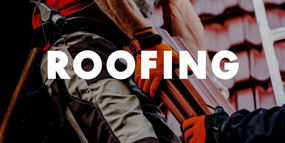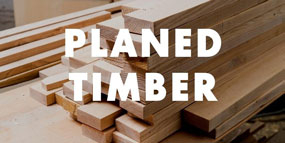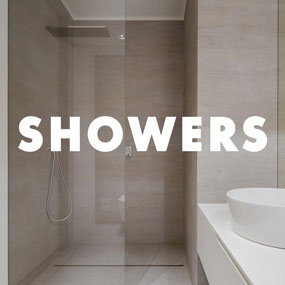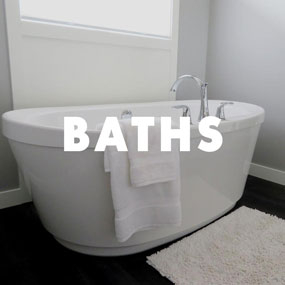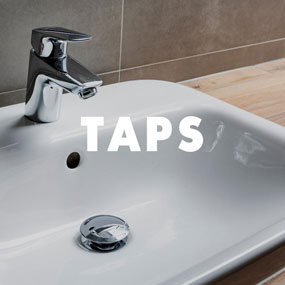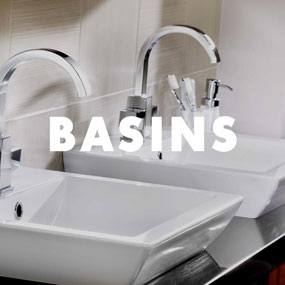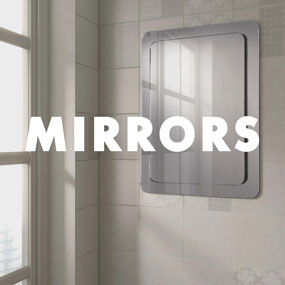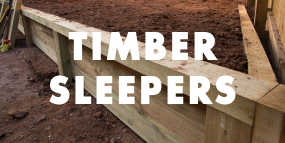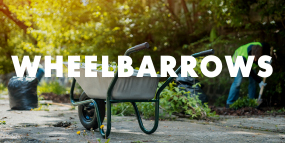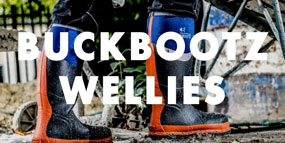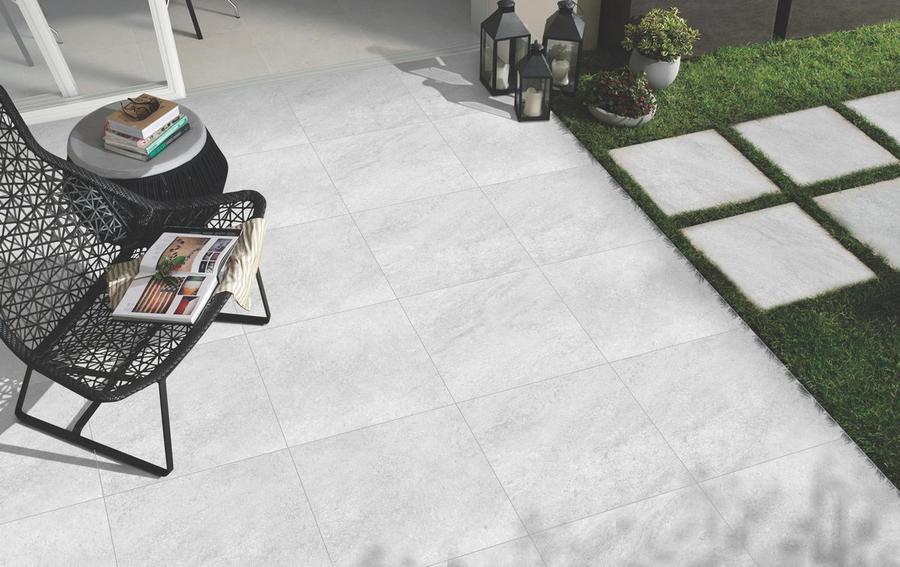When it comes to laying a new patio there are a number of great choices, from natural sandstone, limestone or slate to practical concrete or a contemporary porcelain.
We really are spoilt for choice but with the increasing popularity of porcelain paving, we think it’s time to look at the pros and cons of porcelain paving.
Buying Porcelain Paving
There are lots of benefits when buying porcelain paving. It’s made from dense natural clays and additives, and it is kiln fired to temperatures of up to 760˚C. This means porcelain is remarkably durable with low water absorption. However, this durability can come at an added cost. Some porcelain ranges do lie at the upper end of the price scale, above concrete paving, and some natural stones but potentially a lower cost than granite.
Porcelain paving is man-made and available in a huge range of colours, sizes, patterns, and textures providing a substantial selection to choose from. Manufacturers use inkjet printing technology to achieve a range of effects which include natural stone and even wood effect.
Not only is there a wide range of looks to choose from but the practicality of porcelain is also impressive. Frost and fireproof, extreme temperatures don’t damage porcelain due to its low porosity. Ideal if you want to incorporate a fire pit into the patio.
Despite the smooth surface, porcelain offers good slip resistance. The moisture-resistant qualities help prevent the build-up of algae, moss and mould preventing it from becoming slippery. Choosing a slightly textured surface can also help to prevent slips in the winter months.
Laying Porcelain Paving
Before you begin laying a porcelain patio we recommend getting all the tools and materials you’ll need such as:
- Cement mixer
- Spirit level
- PPE - Gloves
- Electric grinder
- Priming Slurry
- Tile Grout
- Bucket
- Brush
- Cement
- MOT Type 1
- Tile Spaces
Shop materials and tools here
Porcelain pavers are highly durable and can last for up to 50 years but laying them can be fiddly. Thinner than concrete paving or natural stone means the beds they are laid on must be of an adequate depth and appropriately compacted. There should also be a final layer of sand that has been carefully levelled. If not laid carefully breakage can occur.
Our top tips to prevent breakage:
- Cutting: Although highly durable the density means specialist tools are required to cut. An electric grinder provides control and minimises breakage but don't forget to apply water while cutting to limit dust gathering.
- Marking and measuring: When planning a curved cut, your best bet is to use the actual object to trace the line accurately. With straight cuts, it’s easier to measure the flag space and draw the lines out on the flag using the same measurements.
- To avoid nasty chips, prepare the cut by scoring the line into the flag, making a shallow indent that a full cut can follow.
- Cut into each end of the line, all the way through.
- Carefully proceed with the full cut, with someone else making sure the dust is sprayed with water.
- Again be sure to use a handheld electric grinder over a petrol cut off saw, which is too powerful for this paver.
- When it comes to laying the Porcelain flags a layer of priming slurry is needed to bond them to the mortar and make sure the slurry you use is a thick consistency.
- Apply the slurry all over the bottom of the flag, to make sure it stays firmly in place.
- Use the spirit level to ensure the finished product is level.
Caring for Porcelain Paving
Once fitted Porcelain paving is typically low maintenance and for additional resistance it can be sealed with Pavestone Porcelain Protector.
Cleaning the paving is as simple as mop and bucket. Though, it can take the stress of a pressure washer and there is the option to use the Porcelain Cleaner a gentle, PH neutral, formula designed specifically for porcelain paving tiles. Cleans without damaging the grout or tile and leaves tiled surfaces fresh and clean.
Although you may pay a little more for porcelain and you need to take extra care when laying. This material is incredibly hardwearing and looks sleek and contemporary. Due to its longevity, low maintenance and durability any extra cost upfront is more than made up for over the years. Porcelain is fade resistant, easy to care for and if laid correctly is resistant to damage.
Shop our range of Porcelain Paving online. Or drop into your local branch to speak to one of our experts.

